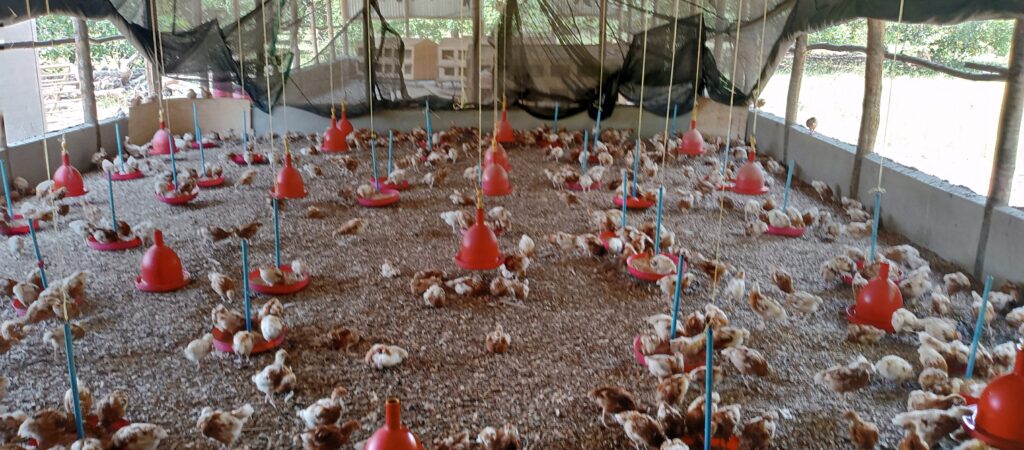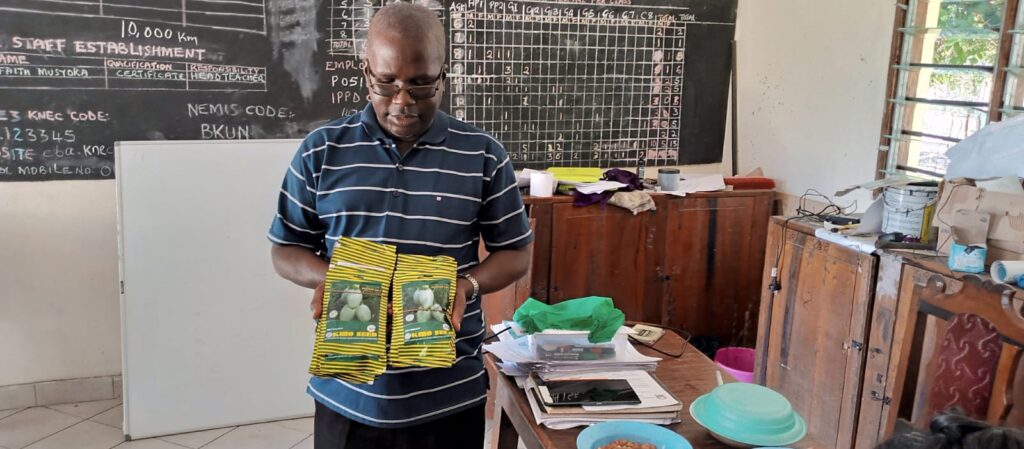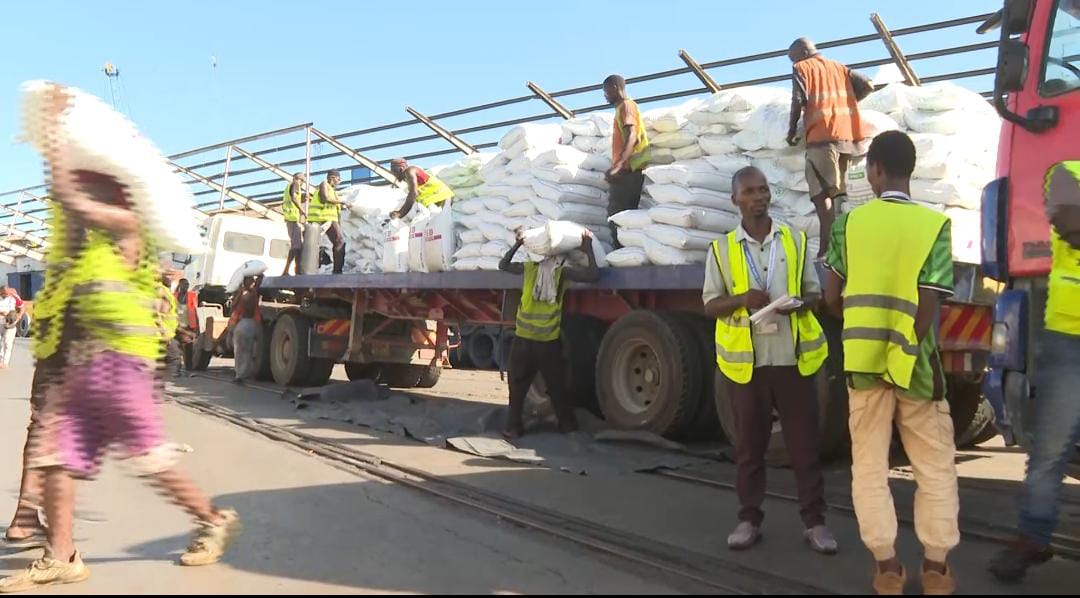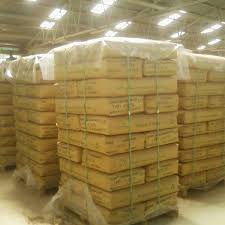Capsicum growing under drip irrigation at Kidimu School for the Deaf in Kwale County
When he arrived at the school in 2019 as the head teacher Athman Mwakuyu found a heap of manure at the compound behind one of the classrooms and thought it had been kept there ready for use in the farm.
But that was not the case and on enquiry he learnt that it had been dumped by a neighbouring livestock farmer who had no place to dispose it.
Having been involved in serious farming in the previous schools he served, Mwakuyu felt that he had to do something at his new school, Kidimu School for the Deaf, and within a short time, he had turned the dumped manure into a food basket and income for the school.
About five years down the line in 2024, Kidimu School for the Deaf is a model on how climate smart agriculture can turn a dry and small piece of land into a productive farm.
“The people mainly well-wishers who have been supporting us saw the need to scale up agriculture from a small kitchen garden at the school and provided a shade net and installed the drip irrigation infrastructure, which has revolutionized farming in this area.
“We have a steady supply of water from a borehole, and this enables us to grow a variety of crops mainly vegetables including capsicum, tomatoes, carrots, onions and eggplant,” said the head teacher as he took Media for Nature on a tour of the school farm.
What inspires the head teacher is seeing his pupils enjoy a meal made from some of the produce harvested fresh from the farm.
“They are always happy and enjoy every meal because they too have been part of the food production on the farm. The school runs what used to be commonly known as the 4K Clubs teaching pupils farming skills and they apply them on the farm. There are some pupils who just love farming and would spend part of their free time tending to the farms in the company of a teacher. Some have tried to practice what they have learnt at home” said the head teacher at the school, which has 62 pupils with hearing impairment.
Mwakuyu says that integrating learning with farming has had very positive effects because, apart from eating fresh food from the farm, the pupils have been encouraging their parents to do what they are doing in school.

Thriving poultry farm at the school to supplement income and enhance nutrition of the pupils.
From the over 700 layers, the head teacher says the pupils are guaranteed an egg or two in the morning to improve their diet, apart from the income generated from selling the eggs.
Outside the shade net, the school has about four acres of land that is used for cultivating maize and green grams.
Agricultural economist Masai Mwawira who is also the chairperson of the school, summed it in one sentence; “It is not how big the land is to produce more quality produce but how smart a farmer is to turn a small parcel of land into a productive piece.”
A walk through the school, there is nothing unusual until you get to the small farm measuring about half an acre, the school community refers as a kitchen garden all under a shed net and under drip irrigation.
Mwawira said the project, which has taken the form of a kitchen garden ensures that the school community gets food but, on another level, turn the land into serious agriculture to earn some income for the school.
Although he did not give an estimate of how much the school makes from selling vegetable to the local surrounding community, all their vegetable needs are currently being met from the farm
“The drought situation in the area means that if we don’t develop a new approach to agriculture, we will always be dependent on relief food as is the case at the moment in many parts of Kwale County following prolonged drought. With availability of water at the school, what we have done is to get the right seeds, manure and leave the rest to nature.
“We started this project in 2019 and the results have been overwhelming. Apart from the vegetables that are doing very well, the school has introduced other farming activities including poultry and bee keeping in the mangrove forest not far from the school,” he said.

Agriculture expert and school official Masai Mwawira holding bitter tomato seeds ready for planting at the school farm
The agricultural expert says the idea to use the shade net for the vegetable farm was part of the climate change adaptation and mitigation because it reduces the intensity of the heat.
“But that’s not all. The net prevents insects and pests from entering to attack the crops. The drip irrigation system on the other hand uses water when it’s needed and, therefore, helps to conserve it.
“We have boreholes and use electricity to pump the water, but the plan now is to buy solar panels that will enable us start solar floppy irrigation to fully embrace the green energy,” said Mwawira.
In solar floppy irrigation, according to the expert, water drops on the leaves of the crops, which has a cooling effect on the plant compared to drip irrigation, which only goes directly to the roots through the soil.
What WFP says
According to the World Food Programme (WFP) access to adequate quantities of nutritious food remains a challenge for many, especially in arid and semi-arid regions which make up 80 percent of the country’s land area. Factors include rapid population growth at a rate of 2.9 percent a year, climate change, stagnating agricultural production and inefficient food systems. Food insecure families typically live in rural areas, are poor and depend on daily agricultural labour for income.
Agriculture remains the main economic driver but is very vulnerable to climate shocks. Unpredictable rainfall and recurring droughts contribute to the disruption of crops – 95 percent of which are rain-fed – and the erosion of soils. Inefficiencies in food systems – the networks that are needed to produce and transform food, and ensure it reaches consumers – lead to high prices and insufficient market supplies, limiting the availability of, and access to, food.




